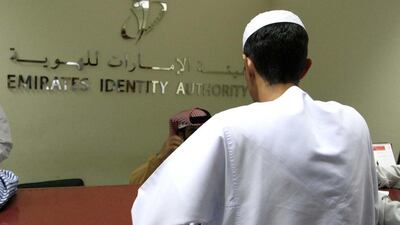The UAE is heavily involved in the promotion of Blockchain technology.
Firstly the Global Blockchain Council was set up by the Dubai Futures Accelerator comprising well-known players such as Etisalat, Emirates NBD, du, Dubai Multi Commodities Centre, IBM and Microsoft. This has evolved and attracted start-ups using Blockchain technology such as BitOasis and Loyyal. As the council has grown, so has the work its members have been doing in proving the technology works.
In one recent initiative, the DMCC teamed up with BitOasis, a domestic Bitcoin exchange, to develop a Proof-of-Concept replicating the DMCC Business Centre to secure flexible tenancy contracts and registration processes on Blockchain. Although very specific in nature, this in theory could be rolled out to encompass similar concepts within the rental sphere, including property, cars and electronic equipment.
As the concepts have matured, the Government of Dubai announced last October that within four years Blockchain would be used to verify all of the information on an Emirates ID card. This essentially means no more copies of passports and photos will be needed for verification because it will all be held on residents’ Emirates ID. Essentially with Blockchain technology confirming people’s identity, almost everything important to a resident could be stored on the card including passport details, insurance documents, health cards, rental contracts and more. To put this into perspective, the Dubai Government processes over 100 million documents per year – more than 3.3 per second. Once the project is completed in 2020, every single resident in Dubai will have been part of the project, and all of their details will be stored on the Blockchain, encrypted and secured, ultimately making everyone’s life easier.
The reason Blockchain is so powerful is that anything verified on the chain creates an immutable record. This is created by thousands of nodes (computers) constantly verifying transactions. With many computers doing this, these transactions are virtually impossible to alter. Compare this to your bank card – each ATM transaction is verified by one or two systems, yet once a transaction is made it is secure. We have all heard about the theft of bank card details, but this theft happens before a transaction is made through an ATM. Think of the security if this transaction is verified thousands of times over. That’s what Blockchain does.
There are more than 700 Blockchains in existence, yet the term Blockchain tends to be used generically. Every chain that is not the original Blockchain powered by Bitcoin is technically known as an Alt-chain (Alternative to Blockchain). Each crypto-currency has its own chain; two of the better known ones are Etherium and Litecoin. While some have names such as Dash, GoldCoin, TrumpCoin and even DubaiCoin, each of them is technically a token on an Alt-chain, whereas a Bitcoin is a token on the original Blockchain.
Blockchain can go further, much further. Imagine a world where banks can verify transactions and transfers instantly, no more waiting for cheques to be processed, or transfers to hit an account. All of this could be done in an instant, all encrypted and translated by thousands and thousands of computers. Imagine never having to use an access card as your facial biometrics can be stored, allowing access only to those given permission. Imagine a world in perpetual motion, where we as humans only ever need to upload a document once yet use it thousands of times over without fear of theft, disruption or deletion. This is the world of Blockchain.
Tobias Young is head of hydrocarbons at the Dubai Gold & Commodities Exchange, whose ultimate owner is the DMCC. He also sits on Dubai’s Global Blockchain Council, representing DGCX.
business@thenational.ae
Follow The National's Business section on Twitter

